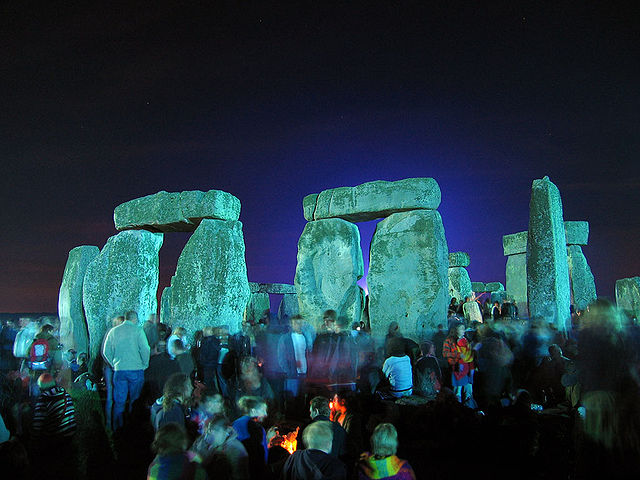A community is a social unit with a shared socially significant characteristic, such as place, set of norms, culture, religion, values, customs, or identity. Communities may share a sense of place situated in a given geographical area or in virtual space through communication platforms. Durable good relations that extend beyond immediate genealogical ties also define a sense of community, important to their identity, practice, and roles in social institutions such as family, home, work, government, TV network, society, or humanity at large. Although communities are usually small relative to personal social ties, "community" may also refer to large group affiliations such as national communities, international communities, and virtual communities.
Community townhall
A community of interest gathers at Stonehenge, England, for the summer solstice.
To what extent do participants in joint activities experience a sense of community?
Lewes Bonfire Night procession commemorating 17 Protestant martyrs burnt at the stake from 1555 to 1557
Social norms are shared standards of acceptable behavior by groups. Social norms can both be informal understandings that govern the behavior of members of a society, as well as be codified into rules and laws. Social normative influences or social norms, are deemed to be powerful drivers of human behavioural changes and well organized and incorporated by major theories which explain human behaviour. Institutions are composed of multiple norms. Norms are shared social beliefs about behavior; thus, they are distinct from "ideas", "attitudes", and "values", which can be held privately, and which do not necessarily concern behavior. Norms are contingent on context, social group, and historical circumstances.
Shaking hands after a sports match is an example of a social norm.
"Normal = bad word", a graffiti in Ljubljana, Slovenia
Figure 1. The return potential model (reproduced from Jackson, 1965).







